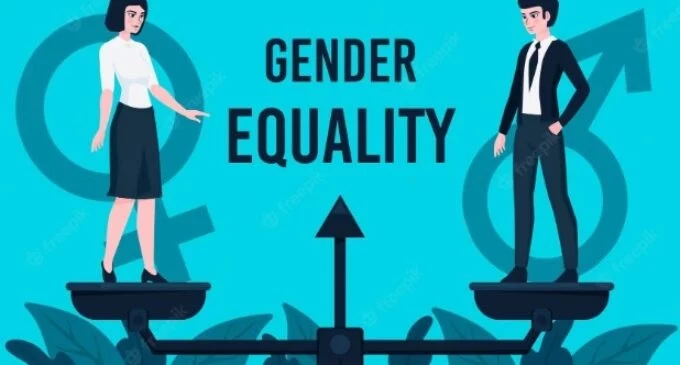Global statistics show that countries that are more gender-equal than not tend to be more prosperous than not.
This is reflected in a statement by the resident humanitarian coordinator of the United Nations in Nigeria, Edward Kallon. Kallon has said there is no way Nigeria can develop without full participation of women. Kallon noted that Nigeria is a country where close to 50 per cent of the population is women.
By saying that, the UN chief could not be any closer to the fact. Nigeria needs her full population’s economic participation for the realization of her full economic potential.
A large body of evidence demonstrates the positive relationship between women’s economic participation and a country’s prosperity. According to the Council on Foreign Relations and Women, a new digital report, ‘Growing Economies Through Gender Parity,’ which visualises data from the McKinsey Global Institute, Nigeria’s gross domestic product (GDP) could grow by 23 percent—or $229 billion—by 2025 if women participated in the economy to the same extent as men. And the International Monetary Fund (IMF) has found that strengthening gender equality in Nigeria could be an economic game-changer, leading to higher productivity and greater economic stability.
However, it is arguable that salient societal and cultural encumbrances affect the female folks’ progress. The trend is especially characteristic of low and middle income countries.
Issues such as gender violence, failure to ensure the right of the female child to free and compulsory education, slavery, to name a few are rife in many developing countries.
Studies have shown that the female folks in developing climes are looked down upon because of acute lack of opportunities to forge ahead in education and vocational skills.
Governments and private investors have long recognised the importance of investing in education and skills development, in terms of both achieving gender equality and economic resilience. But progress for adolescent girls and young women — a group that comprises an estimated one-eighth of the world’s population — is far from equal, especially when it comes to enabling adolescent girls in low- and middle-income countries to have the same opportunities to find employment and participate in their communities.
Even prior to COVID-19, nearly 1 in 4 girls aged 15-19 globally were not in education, employment or training, compared with 1 in 10 boys.
Adolescent girls and young women are Nigeria’s next generation of leaders, innovators, and entrepreneurs. It is their right to learn and reach their full potential. Investing in their success makes economic sense and is also a smart way to maximize social impact.
In order to support female talent, all global stakeholders, including philanthropic entities, governments, and investors need to develop intentional strategies at greater scale of impact that focus specifically on girls’ and young women’s transition from education and learning to employment.
A new report published in a partnership between UNICEF, the GenderSmart Investing Summit, and Volta Capital — has outlined the opportunities to reach more adolescent girls and young women by increasing private capital investment and impact in this area.
It lays out six core investment themes: skills, jobs, education, safety, health, and inclusion that influence how girls and young women make the transition from school to work, and presents opportunities for investors to address persistent gender gaps in education and economic participation.
Nigeria must be great. But leaving out a large percentage of her potential workforce that could join hands to make the country great does not make any economic sense.
The federal government needs to formulate policies to ensure that all those idle hands come on deck by empowering the female folks, especially adolescent females who are Nigeria’s future.
This can be achieved by making sure that they get the requisite security and empowerment from government and society at large.





